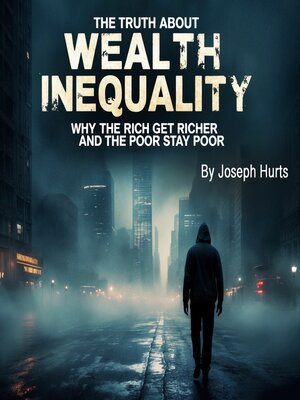The Truth About Wealth Inequality
audiobook (Unabridged) ∣ Why the Rich Get Richer and the Poor Stay Poor
By Joseph Hurts

Sign up to save your library
With an OverDrive account, you can save your favorite libraries for at-a-glance information about availability. Find out more about OverDrive accounts.
Find this title in Libby, the library reading app by OverDrive.



Search for a digital library with this title
Title found at these libraries:
| Library Name | Distance |
|---|---|
| Loading... |
This audiobook is narrated by a digital voice.
Wealth inequality in modern societies is not a natural phenomenon or an inevitable result of individual differences in talent and effort, but rather the predictable outcome of economic and political systems that have been deliberately structured to concentrate wealth among those who already possess it. Understanding how these systems operate requires examining the institutional mechanisms, policy frameworks, and cultural narratives that create and maintain disparities in wealth accumulation while obscuring the systematic nature of these advantages from public view.
The compound interest effect that drives wealth accumulation operates fundamentally differently for those who start with substantial assets compared to those who begin with little or nothing. Wealthy individuals can invest large sums in assets that appreciate over time, generating returns that can be reinvested to generate even larger returns in subsequent periods. This mathematical reality means that wealth grows exponentially for those who have enough capital to invest, while those without significant assets cannot access these wealth-building mechanisms. A person with a million dollars invested at a modest return rate can generate more passive income annually than many people earn from full-time employment.
The asset price inflation that has characterized developed economies over recent decades has primarily benefited those who already owned appreciating assets like real estate, stocks, and other investments, while creating barriers for those seeking to acquire these wealth-building assets for the first time. Housing prices, stock valuations, and other asset categories have increased much faster than wages, making it increasingly difficult for younger generations and lower-income individuals to access the investments that previous generations used to build wealth.







